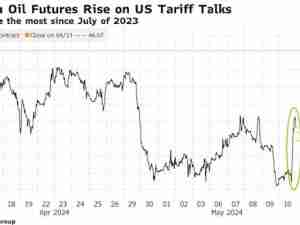Indonesia sees first trade surplus in 5 months, rupiah gains
By: Reuters | Oct 02 2013 at 01:23 AM | International Trade
Southeast Asia's largest economy had a trade surplus of $130 million in August, compared with a record $2.3 billion deficit the previous month.
A Reuters poll had expected an August deficit of $890 million. Only one participant, Bank of America Merrill Lynch, had forecast a surplus.
"The trade surplus will give comfort to the current account deficit problem," said Aldian Taloputra, senior economist with Mandiri Sekuritas.
The rupiah edged higher after the trade data, touching an intraday high of 11,530 to the dollar compared with 11,540 just before the announcement.
Concerns about the current account deficit, which the trade balance is a part of, have pushed down the rupiah, which has lost about 16 percent against the dollar this year.
Jakarta's stock market was up 1.4 percent at 4,376.7 after Tuesday's data.
In a further worrying sign for the economy, exports and imports were markedly weaker than expected.
August exports fell 6.31 percent from a year ago, versus forecasts for a gain of nearly 3 percent, while imports declined 5.69 percent, compared with forecasts for a rise of nearly 10 percent.
Prior to last year, Indonesia always had an annual trade surplus, thanks to oil and other exports. But now it regularly has monthly trade deficits, reflecting how it is now a net oil importer and recent weakness in prices for its commodity exports.
In the April to June period, the current-account deficit was 4.4 percent of gross domestic product (GDP), adding to investors concerns over the government's ability to fund the economy.
Earlier on Tuesday, the statistics bureau said that consumer prices fell 0.35 percent in September from the previous month.
The annual inflation rate was at 8.40 percent in September, lower than the 9.03 percent forecast by analysts in a Reuters poll.
"The softer than expected inflation indicates that panic over inflation in Indonesia was a little overstretched," said Gundy Cahyadi, economist with DBS Bank in Singapore.
Prices surged after an average 33 percent hike in fuel prices in late June.
Policy Meeting on October 8
Annual core inflation, which exclude administered prices and volatile foods, was 4.72 percent in September, up from 4.48 percent in August and compared with 4.51 percent in a Reuters poll.
Bank Indonesia has raised its reference rate by 150 basis points in the past four months, aiming to contain soaring inflation and ease market unease about the current-account deficit.
The central bank's next policy meeting is Oct. 8. Tuesday's data is likely to increase the chance it will not raise its benchmark rate again that day.
The central bank has a difficult choice, to press its battle against inflationary pressures or to stimulate growth by lowering borrowing costs, which could further pressure the rupiah.
Domestic consumption accounts for 50 percent of the already-slowing economy, so higher interest rates and other monetary measures to cool inflation could hurt sales.
The central bank last month cut its 2013 growth forecast to 5.5-5.9 percent. Earlier this year, it was 6.2-6.6 percent.
Also on Tuesday, a HSBC Markit purchasing managers' index (PMI) survey showed manufacturing activity increased in September, though new orders and export orders fell. (Reuters)








